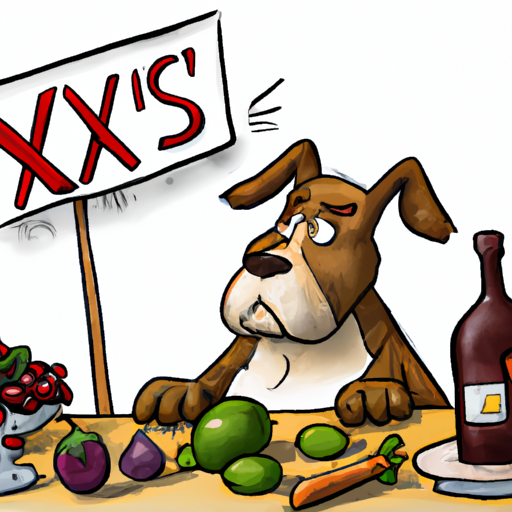Introduction
Taking care of your furry friend is a fulfilling task that requires a lot of attention and dedication. As a caregiver, you must know what goes into your dog’s belly since not all human food is safe for them. This guide will take you through eight categories of food that your dog should never consume.
1. Chocolate and Caffeine
Your pooch may wag its tail in delight at the sight of chocolate, but you should resist those pleading eyes. Chocolate contains theobromine, a substance that can cause serious harm to your dog, including heart problems, tremors, seizures, and in severe cases, death. Caffeine, found in coffee and some sodas, is equally harmful.
Dark chocolate and baking chocolate are particularly dangerous due to their high theobromine content.
2. Alcohol
It may seem obvious, but it bears repeating: never give your dog alcohol. Alcohol can cause vomiting, diarrhea, decreased coordination, central nervous system depression, difficulty breathing, tremors, abnormal blood acidity, coma, and even death in dogs.
3. Onions and Garlic
Onions and garlic can cause gastrointestinal irritation and lead to red blood cell damage in dogs. Although it’s rare, consuming large quantities can lead to anemia. This includes onion and garlic in all forms: raw, cooked, powder, and even those present in some baby food.
4. Grapes and Raisins
While the toxic substance in grapes and raisins is unknown, these fruits can cause kidney failure in dogs. Even small amounts can make your dog sick, so keep your vine fruits far out of reach.
5. Dairy Products
While some dogs can tolerate small amounts of dairy, others may experience upset stomachs. This is because dogs lack the enzyme needed to breakdown lactose. Symptoms can include diarrhea, vomiting, and gastrointestinal upset.
6. Avocados
Avocados contain persin, a toxin that can cause vomiting and diarrhea in dogs. While the most dangerous part is the pit, it’s best to avoid avocados altogether to prevent any risk.
7. Xylitol
Xylitol is a sugar substitute found in many products, including sugar-free gum and candy, baked goods, and toothpaste. Ingesting xylitol can lead to a rapid insulin release in dogs, causing hypoglycemia (low blood sugar). Symptoms can include vomiting, loss of coordination, seizures, and in severe cases, liver failure.
8. Raw Meat and Fish
Raw meat and fish can contain bacteria that causes food poisoning. Some fish such as salmon, trout, shad, or sturgeon can also contain a parasite that causes “fish disease” which can be fatal if not treated.
Conclusion
Being knowledgeable about the foods that can harm your dog is a critical part of being a responsible caregiver. Always consult with your veterinarian if you’re unsure about feeding your dog a certain type of food.
Frequently Asked Questions
1. Can dogs eat peanut butter?
Yes, dogs can eat peanut butter as long as it does not contain xylitol.
2. Are apples safe for dogs?
Yes, apples are safe for dogs to eat, but make sure to remove the seeds and core.
3. Can dogs eat eggs?
Yes, dogs can eat eggs. However, eggs should be cooked to avoid risk of salmonella.
4. What should I do if my dog consumes a harmful food?
If your dog consumes a harmful food, contact your veterinarian immediately or call an animal poison control center.
5. Can dogs eat bread?
Yes, dogs can eat bread in small quantities, as long as it does not contain harmful ingredients like onions, garlic, or raisins.
Note: Always consult with your vet before introducing any new food into your dog’s diet.



